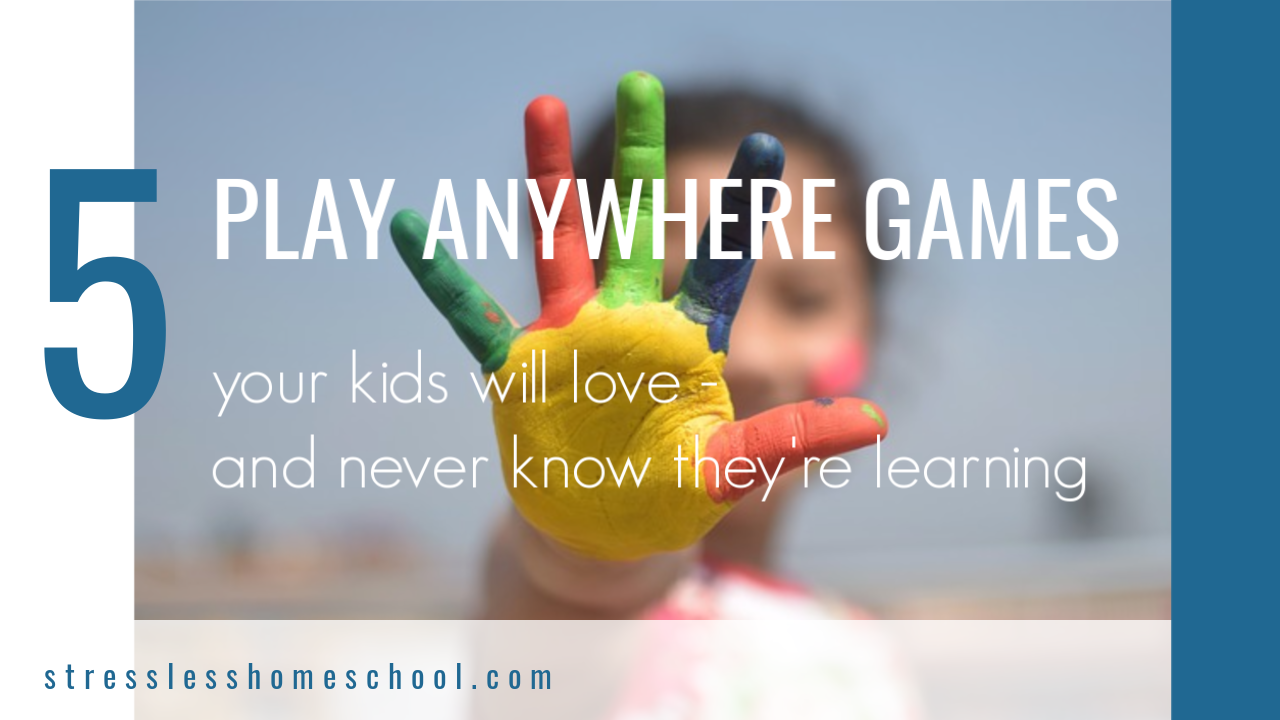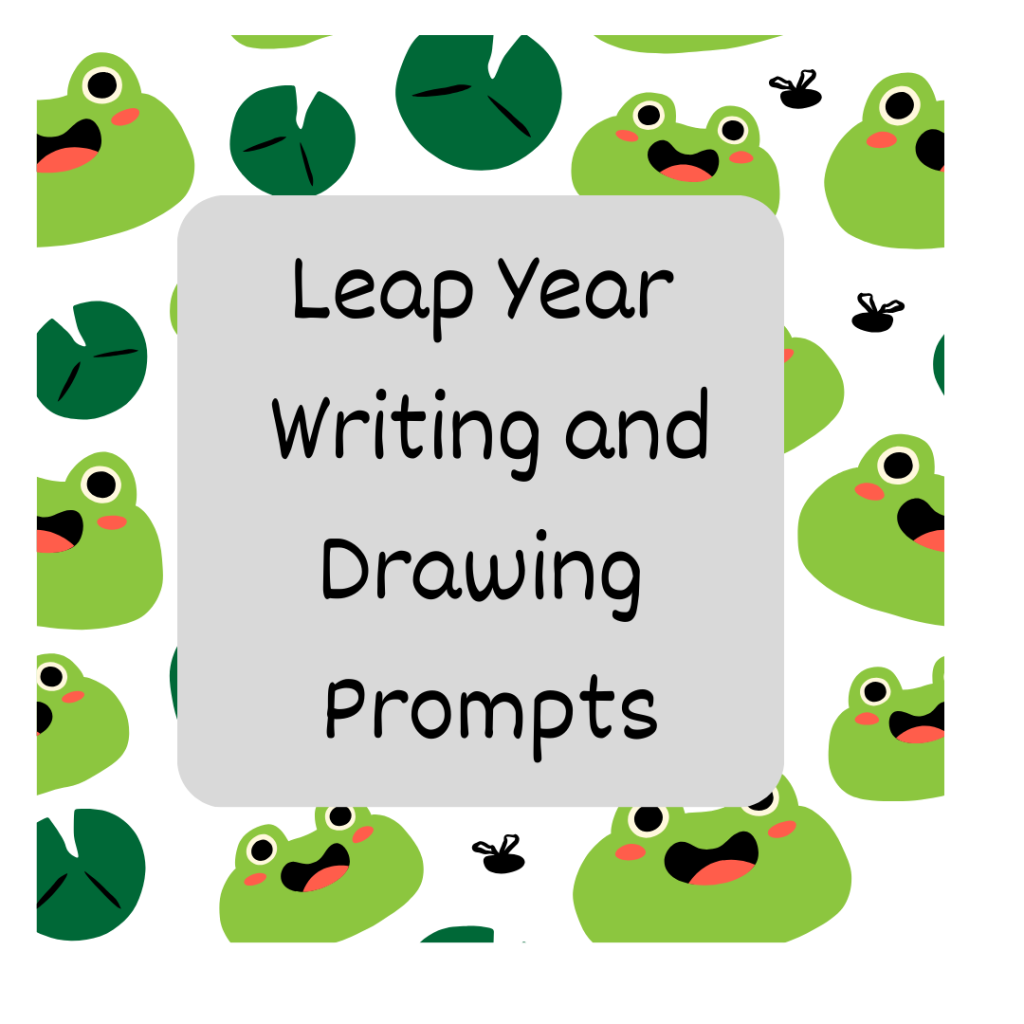5 Play Anywhere Learning Games

For us, especially in the pre-school and elementary ages, homeschooling looked a lot like kids just go everywhere mom goes. These little sponges pick up so much, incorporating lessons and practice into everyday tasks. We even created a catchphrase, singing “Everyday Math!”, any time we had to figure some real life math problem.
Bringing kids along everywhere has some challenges though. The number one difficulty for us – waiting. Whether standing in line or long rides in the car, bored kids quickly turn into grumpy kids. Our solution was playing games whenever the need arose. Looking back, quite a few of our silly games laid important foundations in math, language and thinking ability.
#1 – The Alliteration Game
Take turns adding words to a sentence, each beginning with the same letter or sound. Sentences don’t have to be true but should be grammatically correct. Words can be added at any point in the sentence. Small words (articles, prepositions) don’t have to be alliterative. Example:
Gorillas
Grumpy gorillas
Grumpy gorillas grab
Grumpy gorillas grab grapes
Grumpy gorillas grab grimy grapes
Grumpy gorillas grab gross, grimy grapes
Grumpy gorillas grab gross, grimy grapes
Grumpy gorillas in Granada grab gross, grimy grapes
Grumpy gorillas in Granada greedily grab gross, grimy grapes …
Keep going until you’re out of words to add. (Our record is 35 words!) If kids get stuck, prompt with questions. What adjective could you use to describe the gorillas? How did they grab them? Is there an adverb for that? For younger kids its great for building phonemic awareness. Older kids get to practice and learn new vocabulary and reinforce parts of speech.
#2 – Higher or Lower
The classic number guessing game. One player chooses a number and the other(s) close in, being told higher or lower after each guess. Easily adapts for younger kids (1-10) or older (1-1,000,000). Develops number sense, reasoning ability and mental math calculations.
#3 – Share a story
Take turns telling a story. Start out by asking the kid(s) for a character and setting, the crazier the better. Then each person takes a turn, adding 2-4 sentences to move the story along. After the story is over, older kids can be asked to identify the plot, conflict, or resolution to add to the educational aspects.
#4 – Word Association
This one has only gotten more fun as my son has gotten older (and built a bigger vocabulary). Start with any compound word. Take part of the word and use in a new compound word or phrase. Continue, building the bigger chain you can without repeating. Or make the goal to get back to original word. Example:
Race horse
Foot race
Clubfoot
Poker club
Poker chip
Chips and dip
Dipstick
Stick in the mud
Mud pie
Apple pie
Candy apple…
#5 – 20 Questions type games
I Spy… I’m thinking of a food, an animal, etc… Classic 20 questions. These types of games – where the chooser can only answer yes or no to the questioner – develop logical thinking and questioning skills and can be played with any child old enough to speak.
Do you have any games to add to the list? Share them below!



